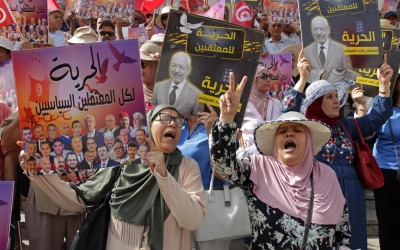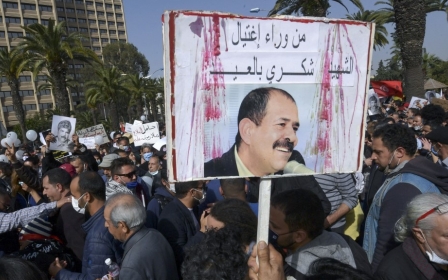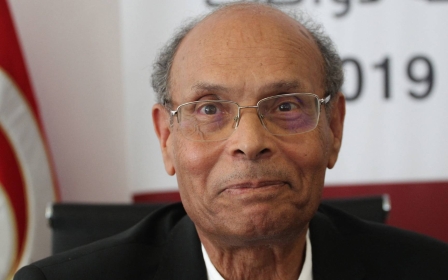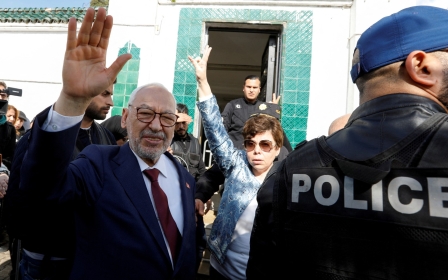Tunisia: Leading regional figures launch campaign to help secure release of Ghannouchi
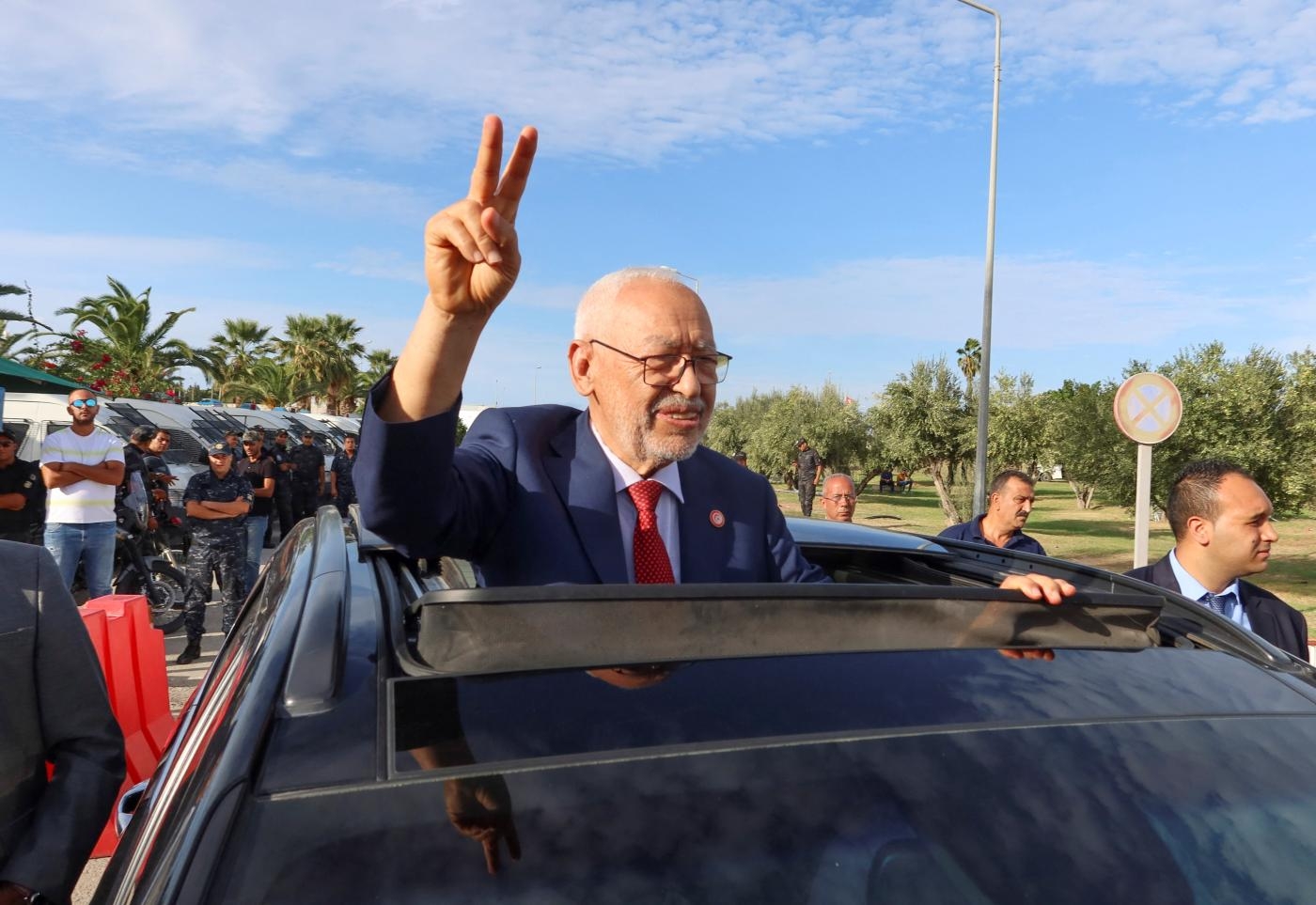
A former Tunisian president and several former regional leaders have launched a new international body in solidarity with Tunisia's imprisoned former speaker of parliament, Rached Ghannouchi, exactly one year after he was detained and his party's headquarters were raided.
The International Committee for Solidarity with Rached Ghannouchi was established on Wednesday, one year after the 82-year-old was "unjustly detained at his home" and "taken to an unknown location, denied access to a lawyer, and subjected to a lengthy and degrading interrogation," it said in a statement.
A vocal critic of Tunisia's powerful and erratic President Kais Saied, Ghannouchi was detained last year on charges of incitement against police and plotting against state security.
Earlier this year, in a separate case, a judge sentenced him to three years in prison on charges of accepting external financing.
The international committee, which boasts members including former Tunisian President Moncef Marzouki, former Moroccan Prime Minister Saad Dine Elotmani, and former Libyan Prime Minister Mustafa Abushagur amongst many others, said it would focus its work on calling for Ghannouchi's release, and that of all political prisoners.
New MEE newsletter: Jerusalem Dispatch
Sign up to get the latest insights and analysis on Israel-Palestine, alongside Turkey Unpacked and other MEE newsletters
Before his arrest, Ghannouchi had played "an essential role in consolidating the foundations of an emerging democratic system … reducing political and ideological polarization, and enacting a progressive, pluralistic constitution," the committee said.
But since then, Tunisian authorities have systematically dismantled "democratic institutions painstakingly built over a decade of democratic transition," it said.
"In their place, a new system of authoritarian one-man rule has been put in place through an array of unconstitutional executive decrees," it added.
Saied, a former constitutional law professor, was democratically elected as president in 2019. A fiery populist, he billed himself as an outsider who could take on Tunisia's established political parties, which oversaw growth in democracy but also mounting economic problems in the country of 12 million.
In 2021, however, he shut down parliament and replaced it with a rubber-stamp assembly, an act whose planning was revealed by MEE two months earlier.
He later rewrote the constitution to consolidate power and has targeted political opponents. Meanwhile, his vow to fix the country’s ailing economy has fallen flat, as Tunisians cope with high inflation and shortages of basic goods.
In the last 18 months, the president has dismissed several ministers, including Prime Minister Najla Bouden, without explanation.
Saied immediately replaced her with Ahmed Hachani, a retired central bank employee who had shared articles on his Facebook account espousing conspiracy theories.
In the last year, about 20 opposition, media, and business figures have been imprisoned, accused of "plotting against state security".
Among the other prominent opposition figures to be detained are former UK resident Said Ferjani, former justice minister Noureddine Bhiri, and former public prosecutor Bechir Akremi.
Amnesty International has labelled the arrest campaign a "politically motivated witch hunt".
Middle East Eye delivers independent and unrivalled coverage and analysis of the Middle East, North Africa and beyond. To learn more about republishing this content and the associated fees, please fill out this form. More about MEE can be found here.


